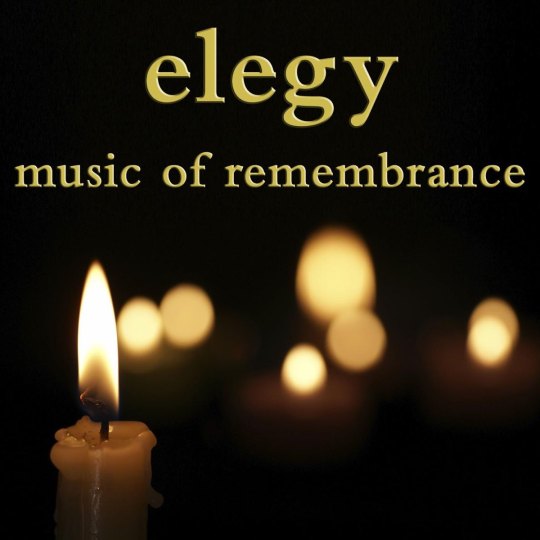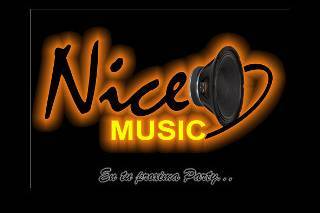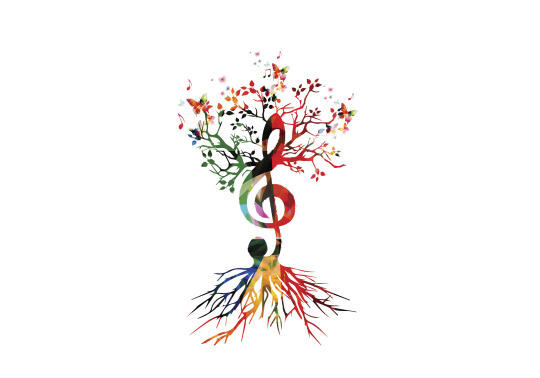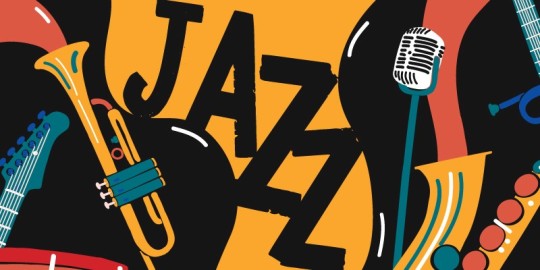Text
youtube
0 notes
Text
From Classical Laments to Contemporary Tributes: Exploring the Elegy in Music
Music, as a mirror of human emotion and experience, has always held a profound capacity to capture the essence of life's most poignant moments. One genre that excels in this delicate task is the elegy. The elegy in music serves as a vessel for expressing emotions that often lie beyond the reach of words, conveying feelings of sorrow, loss, and remembrance. As we journey through the annals of musical history, we find that the elegy has evolved, transcending classical traditions to find a meaningful place in contemporary music, where it continues to be a poignant means of paying tribute to those we've loved and lost.
The Classical Roots of Elegy
The roots of the elegy in music can be traced back to classical compositions that mourned the loss of loved ones or significant events. In the realm of classical music, the works of luminaries like Wolfgang Amadeus Mozart and Frédéric Chopin offered solace and reflection through elegiac compositions. Mozart's "Requiem Mass in D minor" and Chopin's "Funeral March" from his Sonata No. 2 in B-flat minor are timeless examples of the genre's classical beginnings. These pieces, characterized by their melancholic melodies and somber harmonies, provided listeners with a means to confront and navigate grief.
The Contemporary Evolution
In the modern era, the elegy has taken on new dimensions, embracing contemporary musical forms and genres. It's no longer confined to the classical realm but has found a place in the diverse landscape of popular music. Iconic songs like Elton John's "Candle in the Wind" and Eric Clapton's "Tears in Heaven" serve as tributes to lost loved ones and capture the essence of remembrance with a contemporary twist. In these songs, and many others like them, the elegy continues to resonate with audiences, bridging the gap between classical and popular music.
A Means of Personal Expression
Beyond famous compositions, the elegy has also become a means of personal expression for modern artists. Songwriters use their craft to process grief, commemorate loved ones, and offer solace to listeners experiencing similar losses. These contemporary elegies come in various forms, from heartfelt ballads to emotionally charged rock anthems, each providing a unique channel for healing and remembrance.
A Universal Language of Mourning
One of the most striking aspects of the elegy in music is its ability to transcend cultural and linguistic barriers. Grief is a universal emotion, and music, as a universal language, allows individuals from diverse backgrounds to connect and find solace in shared experiences of loss. Regardless of the era or genre, the elegy remains a poignant reminder of our shared humanity.
Conclusion
The elegy in music, from its classical laments to contemporary tributes, has evolved as a timeless expression of the human experience. It offers a way to navigate the complex terrain of grief and remembrance, reminding us that through music, we can find solace, healing, and a profound connection to our emotions and to those we have loved and lost. In this exploration, we witness the enduring power of music to transcend time and bring comfort to the hearts of generations.
0 notes
Text
youtube
0 notes
Text
Nice Music and Productivity: How Harmonious Tunes Can Boost Your Workday
In the bustling world of productivity hacks and time management strategies, one often overlooked but highly effective tool is nice music. Beyond its capacity to entertain and soothe, music has the power to transform your workday into a more focused, energized, and enjoyable experience. From the gentle strumming of acoustic melodies to the rhythmic hum of instrumental compositions, harmonious tunes can be your secret weapon for enhanced productivity.
1. The Rhythmic Flow of Focus
One of the most compelling ways in which nice music can boost productivity is by helping you find your rhythm of focus. The gentle tempo of instrumental music or soft acoustic tunes can create a consistent, calming background that keeps distractions at bay. Many find that a consistent beat in the background helps establish a flow state, enabling you to immerse yourself in tasks and maintain concentration.
2. Stress Reduction and Relaxation
Workdays often come with their fair share of stressors, but music can be a powerful stress buster. The right selection of harmonious tunes can reduce stress hormone levels, lower blood pressure, and create an overall sense of calm. As you listen, you might find that the tension in your shoulders eases, and your mind becomes clearer and more focused.
3. Enhanced Creativity and Problem Solving
For tasks that demand creative thinking and problem-solving, nice music can be a catalyst for inspiration. It stimulates the brain's creative centers, fostering innovative thinking and imaginative solutions. Whether you're brainstorming ideas, writing, or working on artistic projects, the right music can provide the creative spark you need.
4. A Mood Elevator
Nice music has the power to elevate your mood. When you're feeling upbeat and positive, tasks become more enjoyable and less burdensome. Uplifting melodies can infuse your work environment with positivity, making it easier to tackle even the most challenging of tasks with a smile.
5. A Sense of Accomplishment
As you work through your to-do list with the backdrop of harmonious tunes, you'll likely experience a sense of accomplishment and satisfaction. Music can enhance the reward centers of the brain, making you feel that your efforts are more meaningful and enjoyable. This positive reinforcement can boost your motivation and productivity.
Conclusion
In the quest for productivity, it's essential to remember that the journey need not be filled with stress and monotony. Nice music provides a delightful and effective way to enhance your workday. Whether you're looking to find your flow, reduce stress, boost creativity, elevate your mood, or simply make your tasks more enjoyable, the right harmonious tunes can be a game-changer. So, consider curating your own workday playlist, and let the power of music transform the way you approach productivity, one harmonious note at a time.
0 notes
Text

7 notes
·
View notes
Text
The benefits of singing in a choir: how participating in a choral group can improve mental and physical health
Singing is an art form that has been around for centuries and is a popular way for people to express themselves. When it comes to singing in a choir, the benefits are numerous and vast. Being part of a choir not only improves your singing skills and vocal ability, but it also has several physical, mental, and emotional benefits.
Firstly, singing in a choir promotes team building and social connections. Being part of a choir forces you to work closely with others, building a sense of teamwork, and creating a strong social bond. This can lead to long-lasting friendships and can also significantly improve your communication and collaboration skills.
Secondly, singing in a choir improves your overall health. It involves deep breathing and strengthens your diaphragm and your lung capacity, which can help with your breathing and overall respiratory health. It can also increase endorphin levels and reduce stress, creating a positive impact on your mental health.
Thirdly, singing in a choir can enhance your creative expression and improve your self-esteem. It allows you to express yourself creatively and explore your emotions, which in turn, can lead to self-discovery and a better understanding of yourself. Additionally, performing in front of others can give you a sense of accomplishment and boost your self-esteem.
Fourthly, singing in a choir can improve your cognitive function. It requires attention to detail, memorization, and concentration, which could improve your brain function and memory retention over time. Furthermore, learning and interpreting new songs can also broaden your musical knowledge and overall cultural awareness.
Fifthly, singing in a choir can provide a sense of belonging to a community. It allows you to connect with others who share similar interests, values, and goals. Being part of a choir can create a family-like bond with your fellow singers, and it can also provide a sense of belonging to something significant.
Sixthly, singing in a choir can provide additional opportunities and experiences. Choirs often perform in public, which can lead to many opportunities to showcase your talents and develop your performance skills. Moreover, the choir members can be invited to workshops, concerts, or festivals and can collaborate with other choirs.
Lastly, singing in a choir is a great stress reliever. As mentioned earlier, singing has been proven to increase endorphin levels and reduce stress. Singing in a group also immerses you in a social situation, which can help you reduce stress and anxiety.
In conclusion, singing in a choir offers numerous benefits that aren't just limited to enhancing your vocal skills. It promotes social connections, enhances health, boosts creativity and self-esteem, improves cognitive function, creates a sense of community and belonging, provides opportunities and experiences, and is a great stress reliever. Being part of a choir could be a meaningful and rewarding experience that can change you not just as a singer, but also as a person.
#choral music#music#classical music#instrumental#youtube#choralmusiclover#choralmusiceducation#choralmusician#choralmusicaz#choralmusicclass#choralmusicforever
0 notes
Text
youtube
#music#classical music#piano music#pianolove#youtube#calm music#instrumental#Youtube#choralmusicforever#choralmusiccamp#choralmusicbag#choralmusicaz
0 notes
Text
The Relationship Between Love and Music Therapy: Can Music Help Heal Broken Hearts?
Love can be both beautiful and painful. When a relationship ends, it can leave us feeling heartbroken, lost, and overwhelmed. The good news is that there is a powerful tool that can help ease the pain and heal broken hearts: music therapy.
Music therapy is the clinical use of music to address physical, emotional, cognitive, and social needs of individuals. It has been found to be effective in reducing symptoms of depression, anxiety, and stress, as well as improving communication and overall well-being.
The relationship between love and music therapy is a strong one. When we listen to music, it can evoke powerful emotions and memories. It can transport us back to a time when we were in love, or help us process the pain of a broken heart. Music can help us express our feelings, even when we don't have the words to do so.
Music therapy can help us process our emotions and cope with the pain of heartbreak. It can provide a safe space for us to express our feelings, and can help us find meaning in the experience. Music can also help us find hope and optimism for the future.
There are many ways to incorporate music therapy into our healing process. Listening to music can be a powerful tool for relaxation and stress reduction. We can create playlists of songs that resonate with our feelings and help us process our emotions. We can also participate in music therapy sessions with a trained therapist who can guide us through the process of healing.
Music therapy can also be used in conjunction with other therapies, such as talk therapy and cognitive-behavioral therapy. It can help us access our emotions and experiences on a deeper level, and can provide a new perspective on our situation.
In conclusion, the relationship between love and music therapy is a powerful one. Music can help us heal from the pain of heartbreak and find hope for the future. Whether we are listening to music on our own, or participating in music therapy sessions, we can find comfort and healing through the power of music.
1 note
·
View note
Text
youtube
1 note
·
View note
Text
"The History and Evolution of Hip-Hop Music"
Hip-hop music, also known as rap music, emerged from the African American community in the Bronx, New York City, in the early 1970s. It has since evolved into a global phenomenon that has influenced popular culture worldwide. The roots of hip-hop can be traced back to the griot tradition of West Africa, where storytellers would use music and spoken word to convey their message. In the 1960s and 1970s, African American communities faced issues of poverty, social inequality, and police brutality, which created a need for a new form of expression.
Hip-hop music was born out of this need for expression, with DJs and MCs (rappers) creating a new sound by mixing and manipulating different records and beats. The early pioneers of hip-hop included DJ Kool Herc, Grandmaster Flash, and Afrika Bambaataa. They would host parties in parks and community centers, where they would play records and rap over them to entertain the crowds.
As hip-hop music gained popularity, it became a tool for social commentary and activism. Rappers began to use their music to express their views on social issues such as racism, poverty, and police brutality. Public Enemy, for example, became known for their politically charged lyrics, while N.W.A. brought attention to police brutality and the plight of African Americans in the inner city.
Hip-hop music also played a significant role in the rise of breakdancing and graffiti art, two other elements of the hip-hop culture. Breakdancing, also known as breaking, involves acrobatic and gymnastic moves performed to hip-hop music, while graffiti art involves the use of spray paint to create art on walls and other public spaces.
In the 1980s and 1990s, hip-hop music continued to evolve, with different subgenres emerging such as gangsta rap, conscious rap, and alternative hip-hop. Gangsta rap was characterized by its violent and explicit lyrics, while conscious rap focused on social issues and positive messages. Alternative hip-hop, on the other hand, incorporated elements of rock, jazz, and other genres.
Hip-hop music has had a significant impact on popular culture, with many rappers becoming household names and influencing fashion, art, and other areas of entertainment. The genre has also faced criticism for its explicit lyrics and its portrayal of women and violence. However, many rappers have used their platform to raise awareness of social issues and promote positive messages.
In conclusion, the history and evolution of hip-hop music reflect the struggles and triumphs of the African American community. From its origins in the Bronx to its global popularity today, hip-hop music has remained a tool for expression and social commentary. Its impact on popular culture and its ability to inspire and influence people around the world make it one of the most significant cultural movements of the 20th century.
0 notes
Text
The history of jazz: tracing the roots of America's most iconic musical genre.
Jazz is a uniquely American music genre that originated in the late 19th and early 20th centuries. Its roots can be traced back to the African American communities of New Orleans, where musicians would gather in clubs and on the streets to play a fusion of African rhythms, blues, and ragtime. Jazz music gained popularity in the early 20th century, with the emergence of artists such as Louis Armstrong, Duke Ellington, and Benny Goodman. Jazz music continued to evolve and incorporate new styles, including bebop, cool jazz, and fusion, throughout the 20th century. Jazz music has had a profound impact on American culture, influencing everything from fashion and dance to politics and civil rights. Today, jazz remains a beloved and important part of the American musical landscape, celebrated for its improvisation, creativity, and cultural significance.
0 notes
Text
Why musicians are introverts
While not all musicians are introverts, there does seem to be a disproportionate number of introverted personalities in the music industry. This may be because introverted individuals tend to be more reflective and introspective, which can be a valuable trait in the creative process. Additionally, the solitary nature of practicing and composing music can be more appealing to introverts who may prefer working alone. Furthermore, performing in front of large crowds can be overwhelming for some introverted musicians, and they may need time alone to recharge their energy. However, it's important to note that not all musicians fit this stereotype and that creativity can come from individuals of all personality types.

0 notes



